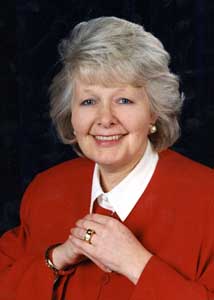-
- Naval Academy grads renew application for gay alumni chapter
- Transsexual’s marriage license case goes to trial
- Pentagon: no direct Boy Scout sponsorship
- Iowa board approves use of gay-themed books
- Canada offering refuge for Americans with post-election blues
- Mass. judiciary interview on same-sex marriage
- Film documents gay and lesbian life in the Lowcountry
- National News Briefs
- World News Briefs
national
Mass. judiciary interview on same-sex marriage
Chief justice unfazed by ‘activist judges’ label
Published Thursday, 25-Nov-2004 in issue 883
BOSTON (AP) – In the year since the Massachusetts Supreme Judicial Court issued its landmark ruling legalizing same-sex marriages, its critics have been fond of lambasting it as the work of “activist judges” who circumvented the law to pursue a liberal social agenda.
The fallout was especially pronounced in the presidential election that pitted a Massachusetts senator against a Republican president who, fresh from his victory for a second term, has vowed to push through a federal constitutional amendment banning same-sex marriage.
The Nov. 18, 2003, ruling changed countless lives of same-sex couples and played a prominent role in this year’s elections – yet the author of the landmark decision is unfazed.
“I think you simply do the best that you can, you decide the case and you move on to the next case,” Chief Justice Margaret Marshall told The Associated Press three days before the first anniversary of the historic decision.
Marshall would not comment directly on the high court’s controversial ruling in what is formally known as Goodridge v. Department of Public Health, the lawsuit filed by seven same-sex couples who wanted the right to marry. Two of the couples are Connecticut residents.
But she, perhaps more than her six fellow justices, became a symbol of what conservatives view as “activist judges.” The criticism was harsh and swift after the ruling was issued, paving the way for same-sex weddings to begin on May 17.
The governor and some legislators pursued with renewed vigor efforts to push for an amendment to the state constitution to ban same-sex marriages.
Some state lawmakers suggested that Massachusetts should abandon its centuries-old system of appointing judges and elect them instead so voters could hold judges accountable for their rulings, and a few opponents even grumbled that the judges on the SJC should be removed from the bench. Neither suggestion went anywhere, but opponents made their point: These “activist judges” had stepped over the line by making law instead of merely interpreting it.
Meanwhile, the ruling galvanized conservatives around the country even as the rhetoric to remove judges cooled in Massachusetts. On Election Day, 11 states passed bans on same-sex marriages.
“I read one pundit recently who said that President Bush should send Justice Marshall a bouquet of flowers [for the same-sex marriage decision], and I agree with that,” said Ron Crews, former president of the Massachusetts Family Institute. “This opinion outraged the country to a large degree.”
A column by USA Today’s Walter Shapiro said the outcome of the presidential campaign may have hinged on the same-sex marriage ruling, potentially a decisive moment for John Kerry in critical Ohio.
Even Karl Rove, the architect of Bush’s re-election campaign, cited the Massachusetts justices in his post-election analysis.
“Marriage ought to be and should be the union of a man and a woman, and we cannot allow activist judges to overturn that,” Rove said.
Some legal observers say the backlash over the Massachusetts court’s decision on same-sex marriage could have a chilling effect on other state courts.
“People don’t want judges making their decisions, and this is something the public is up in arms about now. My guess is that will have a disciplining effect, especially on state court judges,” said Dale Carpenter, a constitutional law professor at the University of Minnesota Law School who teaches a seminar on gay rights.
|
|
Copyright © 2003-2025 Uptown Publications


